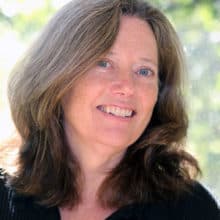Tuesday, February 11, 1868
The Convention was called to order on Tuesday at 10 o’clock, Mr. Pres. Cowles in the Chair.
Today began with a complaint by Mr. Durham of soldiers in the chambers.*
Mr. Durham: Mr. President, I would like to know by what authority armed men come into this room?
President: I do no know sir, but I suppose they are only sitting by our fire warming themselves.
Mr. Durham: It is not customary for armed men to be seen in any Legislative body, and is unknown in the history of this State.
Mr. Ashley: Mr. President, I do hope the United States soldiers will not be expelled from this Hall. This is a manifestation of venom against the “Boys in Blue.”
Mr. Abbott: If I were in charge of the soldiers I would order them out, but as I am not, I can have nothing to do with them.
Mr. Bryan: I cannot see what objection the gentleman can take to the soldier, except it be that they are simply sitting there. No man who behaves himself need be afraid. If the Conservative gentlemen will behave themselves they need not fear.
Mr. Durham: I would tell the gentleman that I am not afraid of either him or the soldiers. The Conservative gentlemen on this floor are not of a “scary kind.”
The soldiers retired.
The rancor continued with a resolution offered by Mr. Harris questioning Mr. Durham’s election as a delegate. He proposed the following resolution;
WHEREAS, it is a matter of common rumor that Plato Durham, delegate “so-called,” from Cleveland, obtained his election by the dishonorable use of a certain official communication of the Freedmen’s Bureau surreptitiously obtained; and, whereas if these rumors are true, it is the duty of this body to expose and purge itself of this corruption; therefore be it
Resolved, That a select committee of three members be appointed by the President, whose duty it shall be to ascertain and report whether such a corrupting procedure was adopted to secure the election of said Plato Durham as a delegate to this Convention, and, if so, that all the facts connected therewith be reported, to the end that the delegate “so-called” may be dealt with.
Mr. Durham responded that if the matter had come from a person of character, he would give more notice to it Harris replied, I will compare character with the delegate from Cleveland and he cannot bear more contempt towards me that I towards him. After further discussion, the resolution was adopted.
Another effort was made to address the means of debate with Mr. Harris making a resolution to limit speeches to 15 minutes. This was laid over.
On matters related to the constitution, the convention took up the report of the Committee on the Judicial Department. The committee was not yet prepared to offer a draft for the constitution. Instead, it sought the opinion of the convention on whether judges should be elected and whether the distinction between action and equity should be abolished.
Mr. Rodman stated that he favored the appointment of judges by the Governor and their confirmation by the Senate. He said, “…every reason urged for their election by the people seems to me to fail entirely. The qualifications of a good judiciary are that they must be learned in the law, wise to apply it, independent, honest and fearless to enforce it even against the people upon some occasions…The great mass of the people are unacquainted with those whose qualifications are superior for such exalted positions…Therefore, it seems to me on reflection that the best mode is that indicated by the U.S. Constitution, which calls the President to nominate and the Senate to confirm.”
Mr. Tourgee countered that he was a Republican by habit, instinct and reason. “The people are best able to govern themselves, and I believe with Aristotle that in a Republic is the greatest wisdom. If the people are competent to choose officers to make and execute the laws, I hold that they are competent to choose officers to interpret the laws. I would be untrue to the highest principles of free government if I should ever be led to approve anything less than that.” He further argued that “if the Legislature had the appointment of Judges, with the notorious bargains and sales, Tammany Hall would buy up the Judgeships.” After extensive debate that included other delegates, the resolution providing “That the Judges of the Supreme Court of the State should be elected by the people” was called for a vote and passed 56-34. In regard to the resolution providing for election of superior court judges, the vote stood, 63 to 15.
After addressing several minor matters, on motion the convention adjourned.
Resources
Ferrell, Joseph, ed., Compilation of the Official Report of the Proceedings of the Convention (Chapel Hill, N.C.: unpublished manuscript 2007). (See day 8 for fuller explanation of this resource.)
*The debate and other quotes from this day’s proceedings are close to verbatim from the reported resources with some adjustment to put all comments in first person, present tense.


